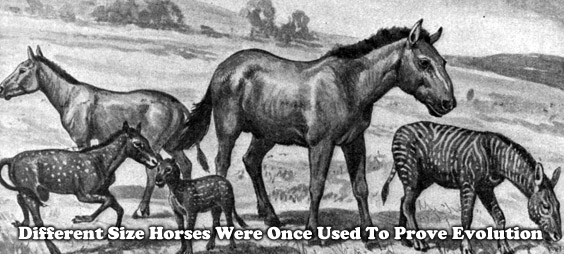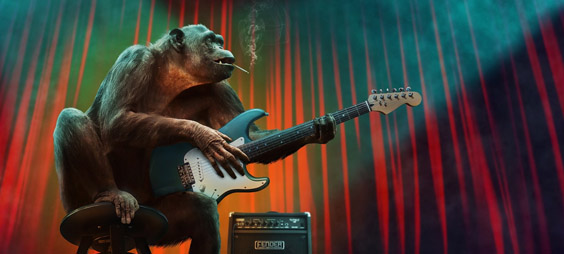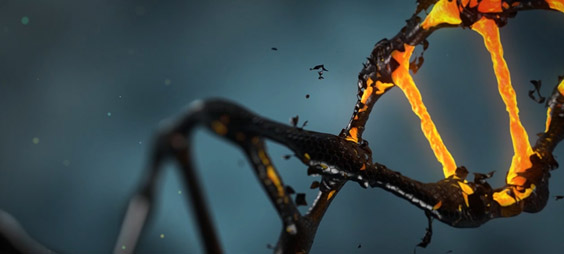We are are talking about human evolution and this is a continuation of a series in which we are addressing claims of proof of evolution on the BBC web site. Tab here to go to the previous page.
When it comes to proving that evolution happened, at times the "proofs" can be out of date, having been debunked sometimes decades ago. In other words, claims that are no longer valid are still used to prove evolution happened. The next part of the BBC web page provides an example. Here's what they say:
"Over the last century scientists have cataloged the genes from different species. It turns out that all living things store information in their DNA in the same way: they all use the same 'genetic code'.
"What's more, organisms also share many genes. Thousands of genes found in human DNA may also be found in the DNA of other creatures, including plants and even bacteria.
"These two facts imply that all modern life has descended from a single common ancestor, the 'last universal ancestor', which lived billions of years ago.
"By comparing how many genes organisms share, we can figure out how they are related. For instance, humans share more genes with apes like chimps and gorillas than other animals, as much as 96%. That suggests they are our closest relatives."
What are they saying and what does it really mean?
#1 - All living things use DNA in the same way to store information: and the only thing this can mean is that all living things originated from a common ancestor?
Or might it be that DNA is the best, most highly optimized method for storing genetic information, and a common designer would first create such an information storage system and then use it throughout all that He creates? Makes sense.
#2 - The same genes used in human DNA are found in other living things: and this means all living things originated from a common ancestor? And there is no other reasonable explanation?
Or might it be that all living things, since they are all carbon-based, do similar things? DNA is used in living things to specify the design of proteins. Might it be possible (actually it is a fact) that all living things use many of the same proteins?
The BBC claims that chimpanzee and human DNA is 96% similar. That's not the 99% claim we addressed before, the 96% number comes from a 2005 issue of the Journal Nature (a British publication). Let's look at this 4% number to understand what it means:
Most mutations are single base pair substitutions that account for 1.23%. That's a BIG number. A 1.23% difference represents about 35,000,000 base pair differences. That's saying there were 35 MILLION mutations that resulted in these differences. To that number we need to add insertions and deletions. These are bases present in chimps, but not in humans, and bases present in humans but not in chimps. These add another 80,000,000 differences. That's a total of 115,000,000 base differences (about 4%). Keep in mind that most, if not all mutations are degenerative. They corrupt the DNA and reduce the amount of information. It is estimated that for every one mutation that adds beneficial information (if they exist at all), there will be one million mutations that degrade the genome. That means producing a 4% difference will take 115,000,000,000,000 mutations, assuming natural selection eliminates the harmful mutations. The number of mutations required to produce the needed beneficial changes is staggering beyond comprehension, if it were even possible (it's not).
However, the genetic difference between humans and apes is far greater than 4%.
In 2018 Dr. Jeffrey Tomkins (a geneticist) was interviewed by Jeff Tomkins. In that interview he makes the point that many of the DNA databases used for doing DNA comparisons, from bacteria to fish, are contaminated with human DNA. This skews the results. In addition, the chimpanzee genome is assembled using the human genome as a scaffold... building in similarities that actually do not exist. What Dr. Tomkins' research is showing is that, doing a true uncontaminated comparison, there is no more than an 85% similarity between chimpanzee and human DNA. Based on DNA there is no feasible way humans and chimpanzees could have evolved from a common ancestor.
BTW, did you know that on the average any two human genomes could be as much as 4.5% different from each other? That should start red lights flashing and warning sirens going off. If two humans can have a 4.5% difference in DNA, how can a chimpanzee and human be just 4% different? It's obvious that the difference between a human and a chimp has to be greater than the difference between two humans. What the BBC article asserts cannot be true.


